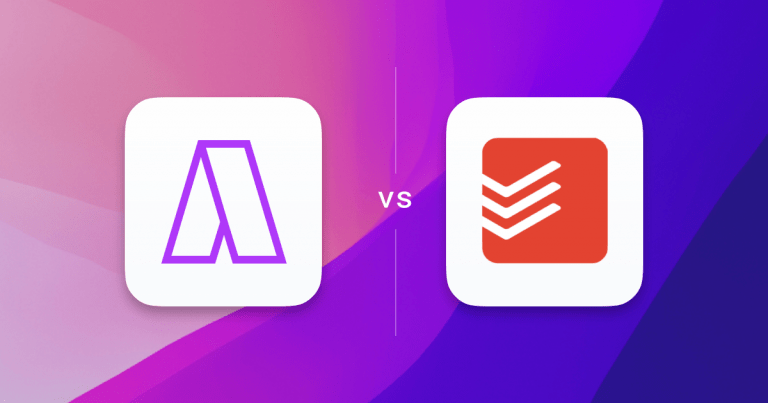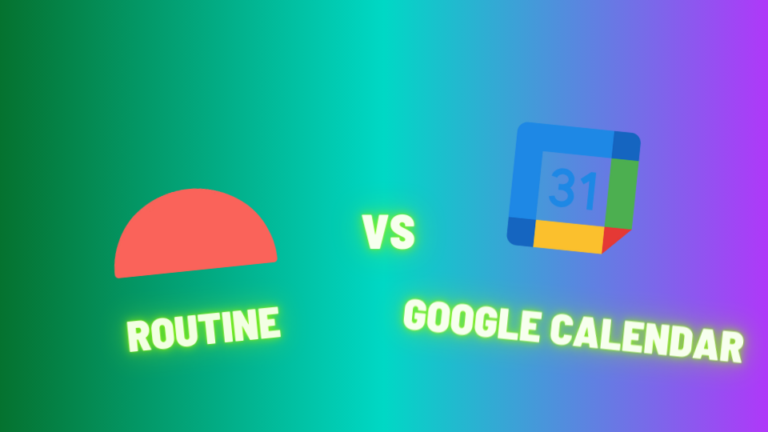What is Routine
Routine is a productivity tool that sets itself apart with its all-in-one approach, combining elements of task management, note-taking, and calendar integration into a single platform. Designed to cater to the needs of busy professionals and individuals seeking to streamline their organizational process, Routine offers a comprehensive solution for managing daily tasks, appointments, and notes. Its unique selling point is the integration of these features within an intuitive and user-friendly interface, making it easier for users to track their to-dos, schedule their days, and store important information in one place. This level of integration is particularly useful for those who prefer a unified system to manage various aspects of their work and personal life.
Key Features of Routine
- Timeline Agenda: Offers a detailed view of the day’s plan with timestamps, including meeting and event reminders, with options to time-block tasks.
- Week Calendar: Provides a 5-day, week, and month view for task planning, integrating seamlessly with Google Calendar.
- Console Capture: A desktop feature for capturing events, notes, and tasks outside the application, ideal for GTD enthusiasts.
- Centralized Workspace: Combines tasks, notes, and calendar in one space.
- Organization: Utilizes categories and tags for better event and task management.
- Daily Plan: Helps in crafting focused daily tasks and important events.
What is Google Calendar
Google Calendar is free-to-use calendar application that excels in event planning, appointment scheduling, and integrating seamlessly with Google’s suite of services including Docs, Meet, and Tasks. It boasts features such as easy event scheduling, comprehensive integration with other Google services, sharing and collaboration tools, mobile access, automatic syncing across devices, customization options, and support for recurring events. Additionally, it offers functionalities like invitations and RSVP tracking, reminders, time management tools, search capabilities, holiday calendars, and weather integration for upcoming events.
Key Features of Google Calendar
- Seamless Integration with Google Services: Google Calendar is tightly integrated with Google’s ecosystem, including Gmail for event invitations, Google Meet for video conferencing directly from calendar invites, and Google Tasks for task management. This integration enhances productivity by keeping all tools in one accessible location.
- Easy Event Scheduling and Sharing: The platform enables users to quickly add events, set reminders, and share their calendars with others. This feature is designed to facilitate collaboration and ensure that scheduling meetings or events is a hassle-free process, making it ideal for both personal and professional use.
- Customizable Views and Event Colors: Users can customize their calendar views (day, week, month, or year) and assign colors to different events, making it easier to manage and visually distinguish between various types of appointments or tasks at a glance.
- Recurring Events and Reminders: Google Calendar supports the creation of recurring events and configurable reminders, which can be set to notify users via email or pop-up messages. This ensures that important dates are not missed and helps in establishing routines.
- Mobile Accessibility and Offline Support: With its mobile app, Google Calendar offers the convenience of accessing and managing your schedule on the go. Additionally, offline support means you can view your calendar and receive notifications even without an internet connection.
- Time Zone Support and Working Hours: This feature is particularly useful for those working across different time zones, as it automatically adjusts meeting times accordingly. Setting working hours also helps in managing availability, preventing meetings from being scheduled outside of these times.
Routine vs Google Calendar: Features
| Features | Routine | Google Calendar |
|---|---|---|
| Integrations | Syncs with multiple calendar services and task managers like Todoist and Google Tasks. | ClickUp, Google Tasks, Zoom, Slack, Salesforce, Google Docs |
| Calendar | Google Calendar, Notion, Slack, Zapier, Siri, Gmail | Yes |
| Platforms | macOS, Windows, iOS, Android, Web | macOS, iOS, Android, Web |
| Task Management | No | NA for Calendar |
| Natural Language Processing | Offers task creation with date assignment via drag-and-drop | Yes |
| Time Blocking | Available | Yes |
| Analytics | No | No |
| Meeting Scheduler | No | Yes |
| Time Zones | Yes | Yes |
| Reminders | Yes | Yes |
| Customer Support | Average | Average |
| 1:1 User Onboarding | No | No |
| Pricing | $12 per month, annually | Free to use |

Routine vs Google Calendar: Pricing
Routine Pricing
(i) Free Version: Available for students and hobbyists, though with limited features.
(ii) Professional Plan: Priced at $12 per month.
(iii) Business Plan: Costs $15 per user per month.
(iv) Believer Plan: Priced at $10 monthly or $8 per month for an annual commitment, totaling around $96 annually
Google Calendar Pricing
Free to use
Routine vs Google Calendar: Reviews
Routine Review
Routine stands out for its exceptional design, skillfully combining elements of daily planning, note-taking, and journaling into a user-friendly interface. The application’s free version is especially popular among students and individuals using it for personal or hobbyist projects, making it a preferred choice in these communities. Additionally, Routine’s smart planning and scheduling capabilities are highly valued by users who favor an automated, intelligent approach to organizing their tasks and appointments. However, a significant limitation of Routine, particularly in its free version, is the constrained number of integrations it offers. This restriction is frequently mentioned by users as a downside, as it may limit the app’s effectiveness in more integrated digital workflows.
Google Calendar Review
Google Calendar is praised for its seamless integration with Google’s ecosystem, offering easy scheduling, comprehensive reminders, and mobile accessibility. It excels in simplicity and functionality, fitting both personal and professional use. However, it might lack advanced project management features found in dedicated tools, and some users may find its interface less customizable compared to specialized calendar apps.
Which One Should You Pick
Consider Routine if
- You Want a Balance Between Calendar and Task Management: Routine offers a mix of these features, but it might not be as comprehensive as some specialized apps in either category.
- You Like Quick Task and Note Capturing: The app has convenient features for this, though it’s not a full-fledged note-taking application
- You’re Looking for a Personal Planner: Routine is more suited to personal use and less technical users, but it might not meet all the needs of power users or large teams.
Consider Google Calendar if
- You seek simplicity and integration with Google’s suite for straightforward scheduling needs, though it may lack the depth in task management features found in more specialized tools.
- Your workflow benefits from easy access and sharing capabilities across devices, though it might not offer the advanced customization options of some competitors.
- You value the convenience of mobile access and automatic syncing, keeping in mind that users looking for comprehensive project management tools may find it limiting.
Best Routine and Google Calendar Alternative
Akiflow: Akiflow is a time management app offering time blocking, task scheduling, and integrations with various tools. It focuses on productivity and organization through a unified task and appointment interface.
Akiflow Price: $19 per month, paid annually

Best Time Blocking Web and Desktop Apps, 2024
Explore the best time blocking apps of 2024! Discover how Akiflow, TickTick, Usemotion, Sunsama, Sortedapp, and TimeHero revolutionize productivity, offering unique features for professionals and students to manage tasks and enhance efficiency.

Improve Focus: 5 ADHD Productivity Tools & Calendar Apps for 2023
Discover five of the best apps and tools for those with ADHD, from note-taking apps to time-blocking platforms. Get ready to stay organised, motivated and on track with Akiflow’s essential guide.

The Top 3 Todoist Alternatives (In-Depth Review)
Over 25 million people now use Todoist to stay on track and plan their day. It has expanded rapidly and is now a widely used task manager with seamless integrations into other task and calendar managers like Akiflow. While Todoist is hugely popular among its wide user base, there are now a variety of Todoist […]

